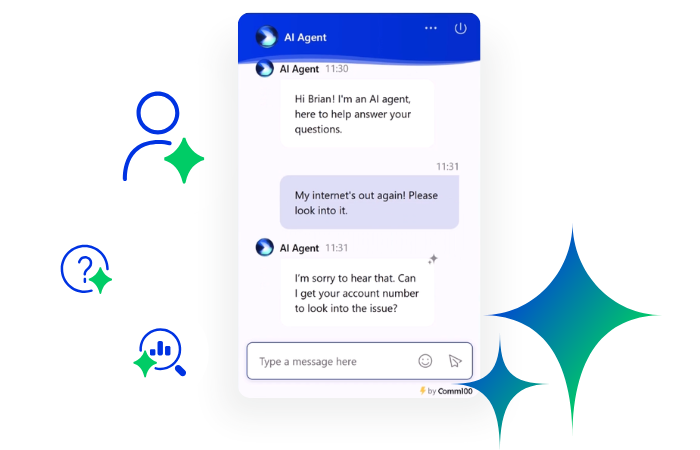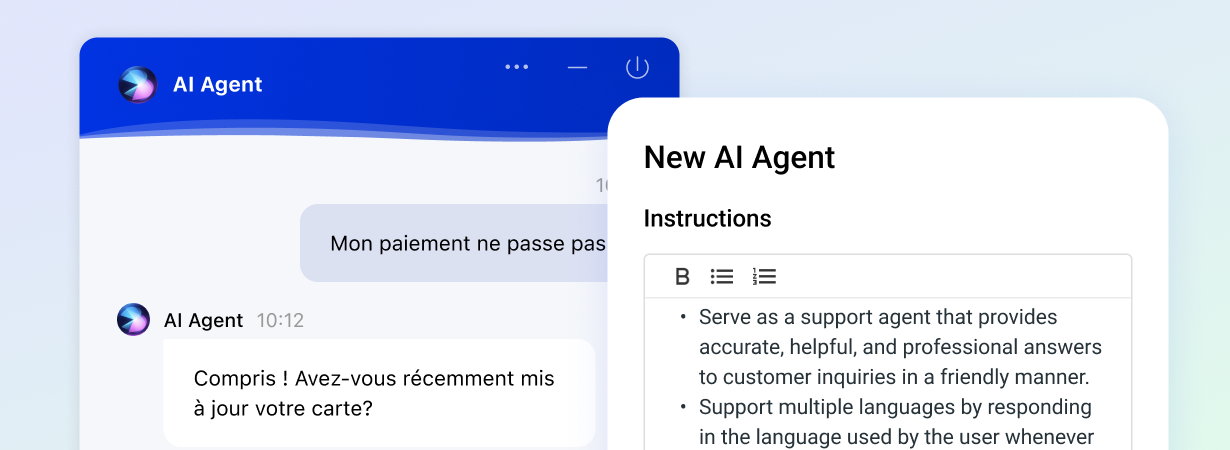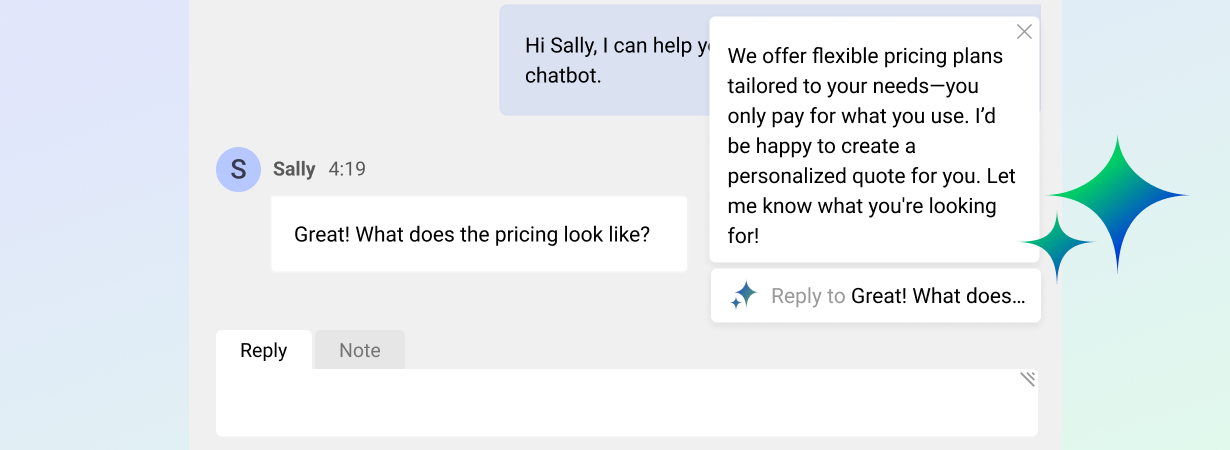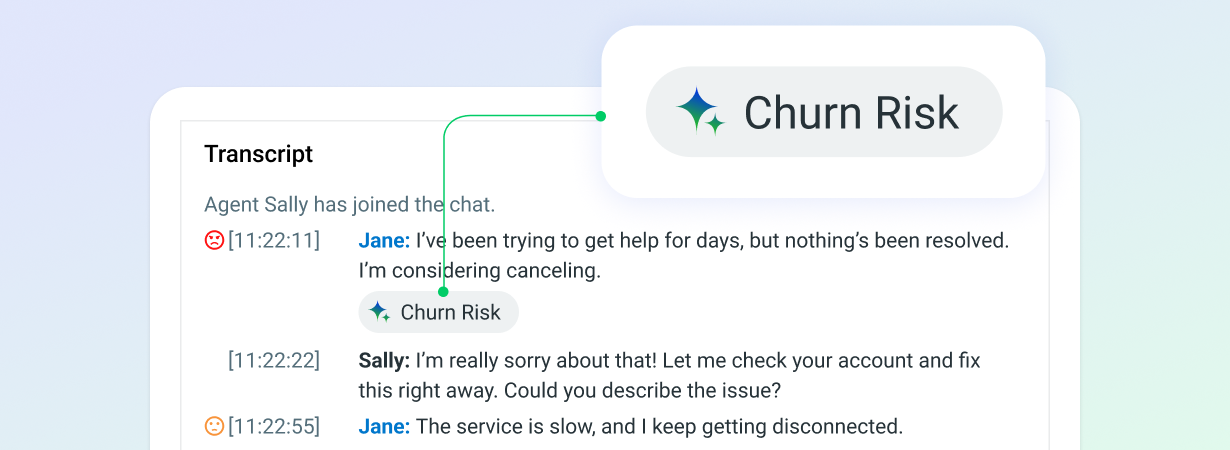Wherever you look, automation is popping up across customer service teams as organizations look to improve efficiency, reduce support costs, and scale their business.
While we read about the many benefits of automation in customer service, it can be difficult to know how exactly to introduce this into your own organization. This blog will help you on your way, providing the top automated customer service examples that can be used across industries.
The AI Agent That Talks Like You
Automate over 80% of all inquiries. Launch in 1 day. Powered by the latest GPT and vast LLMs.
Find out more
Solution
What is customer service automation?
Automated customer service refers to the use of technology that provides customer support without human assistance. The tech is often powered by AI (artificial intelligence) and machine learning algorithms that can mimic human interaction by understanding and responding to customer queries.
Automated customer service examples are abundant. They vary in complexity, from automated email responses to intelligent AI chatbots – one of the most common examples of AI in customer service. Their benefits vary too, from increasing efficiency and cutting costs, to providing 24/7 availability and improving the customer experience. Let’s now explore some automated customer service examples to learn how you can bring this tech into your operations.
Read more: The State of Automated Customer Service in 2023
What are some automated customer service examples?
Customer service automation can come in many types and forms, some simple and others complex. In this blog, we will cover some of the most common automated customer service examples that you could adopt to improve your team’s and agents’ efficiency and productivity.
Depending on your needs and team size, here are some automated customer service examples listed by complexity:
Canned messages are pre-defined answers to frequently asked questions from customers. Agents can select the message response with a click of a button, rather than typing out the full response. As well as public canned messages that all agents can access, individual agents can also create their own private canned messages.
When a customer sends a message via your ticketing system, you can send an automated response to let them know that you have received the message and are working to resolve the issue. These communications can also be sent to update and close the ticket status.
A knowledge base is a library of information like a FAQ page that customers can search through themselves, helping them to self-serve rather than reach out for help.
Task bots guide customers through a series of questions and answers using buttons to resolve their query or complete a task. Task bots can use text, images, videos, and links, and do not require any coding to build.
When a customer sends a message, Agent Assist offers appropriate answers to the agent. The agent can then click the relevant answer and send it to the customer without any time-consuming typing or searching for answers.
Voice bots are AI-powered virtual assistants that communicate with customers via speech through digital voice and telephony channels. The questions are interpreted through NLP (Natural Language Processing) and responded to via text-to-speed technology or pre-recorded audio files. Voice bots are great examples of AI in customer service and how this tech can improve efficiency as well as CX.
AI chatbots are one of the most common examples of AI in customer service. They are bots that, as the name suggests, are powered by AI – artificial intelligence. This means they can understand the intent and complexities of language so they can engage in more natural conversations with customers and handle more complex questions, as well as complete tasks.
Want to learn more about customer service automation?
Read our complete guide – The State of Automated Customer Service in 2023. As well as more in-depth automated customer service examples, it covers these questions too:
- What is customer service automation?
- What is the state of automated customer service in 2023?
- What are the benefits of AI in customer service?
- What does automation in customer service look like?
The AI Agent That Talks Like You
Automate over 80% of all inquiries. Launch in 1 day. Powered by the latest GPT and vast LLMs.
Find out more
Solution






